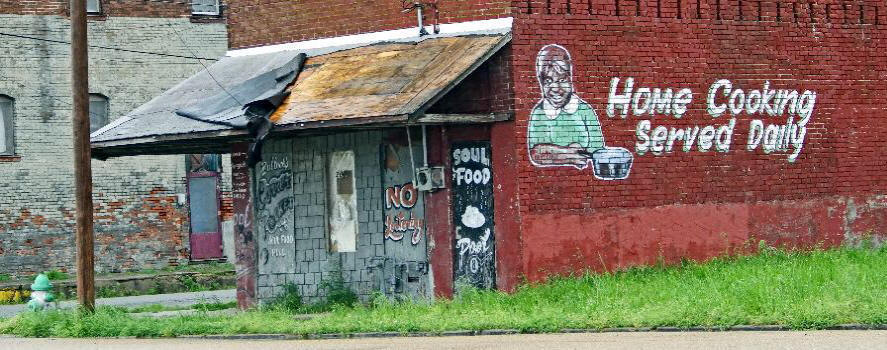
~ Delta Poetry Review ~
Reminders of a Passing Hour
Large oaks overlooking the river tell the years,
though no one listens but the twigs trailing past
and prayers of the leaves that can no longer lift.
One painting on the wall can calm a stormy night.
David, holding stones, needs only the one. A sky
full of snowflakes can’t cover Thoreau’s tracks.
Maybe an hour passing will remind me that
the hours following will be full of fondness for
how feed corn heals behind my hands dug deep.
If I thought I knew what the mind wants to know,
I’d be that scrap of paper wandering the fencerow
by the edge of the woods where no map can reach.
I hope all these guesses have mercy at their core.
If I haven’t been gentle, then nothing’s been true.
Though I never ate manna, I’m nourished the same.
Many Places
for Storie
We’re not just one emotion, not even
two or seven but something like
thousands multiplied by each day,
sometimes each hour in its glorious
repercussive implications. One self—
what is that? Or who would be content
with walking the same path even
if it were lovely and bordered by
hemlocks? Two roads diverged?
Look again! Thousands, millions!
In due time, take them all, one day
gleeful, another day bewildered.
Laughing sloppy trembling serious
strident thankful stunned appalled
surprised disoriented sometimes leaping.
And resolved—don’t forget resolved.
And don’t ignore the power line crow
some mornings nodding an agreement
no sense will quite make sense of,
so just accept it and nod along because,
really, why not! Why not, why yes,
why now, why why, why one person
forty years, another eighty-nine,
and why sometimes reams of paper
when only sobbing seems half-logical
but also half-baked and fully true
and immense and pithy and at least
one way to rebuild what’s broken
or to amen what wholeness feels like
with all its loose ends dangling like
kite strings to reach for, be lifted,
be drifting in and out of currents,
what grace does to all the many
places one goes to, too endless
for one breath, one word, one sky.
Traveler
I wanted to be a world traveler, but first
I had to pick up fallen limbs from a storm.
A literal storm, not the sometimes
useful trope—though once I scarred my hands,
I might have preferred the imagined,
that which occasionally I can manage, direct.
The problem became that I wanted,
in whatever I did, to honor the dead I’d known,
to have “newness of experience” as they would never have again,
not realizing such desire was merely a trope of another kind.
Or is thought itself only a trope for what
the mind, in its futility, cannot conceive?
I took the wheelbarrow, nudged and braced it into place,
then bent to gather all I could, breaking further
the already broken; snapping, tucking, filling the spaces
between the spaces already filled, none of it an easy go,
then heaved and huffed to get the load back up the hill.
More than once I had to stop and readjust, pick up
what fell away, wonder at how the storm left anything standing.
More than once I thought of giving into my exhaustion,
simply lying down and letting history overtake me.
I was taught the everlasting, the laying aside
of what we are, the spirit’s indwelling,
the blink of an eye and all things changed.
I’m not sure I have ever known what I am doing
though I get up every morning and get to it—
for others I’ve adored were one day
baking bread and then the next day diagnosed;
were walking home then stepping from a curb.
“I met a traveler from an antique land,”
the famous caution goes, yet even such decay
becoming “lone and level sands”
I want (or need) to witness for myself.
Will I ever finish picking up what falls away?
I know the answer but ask the question anyway.
The pace of saying it feels cool against my mind.
Again I gather all I am to start back up the hill.
Jeff Hardin is the author of six collections of poetry, most recently No Other Kind of World and A Clearing Space in the Middle of Being. His work has been honored with the Nicholas Roerich Prize, the Donald Justice Poetry Prize, and X.J. Kennedy Prize. The Hudson Review, Southern Review, Grist, and Ruminate have recently published his work.:
| Archive | Submissions | About |